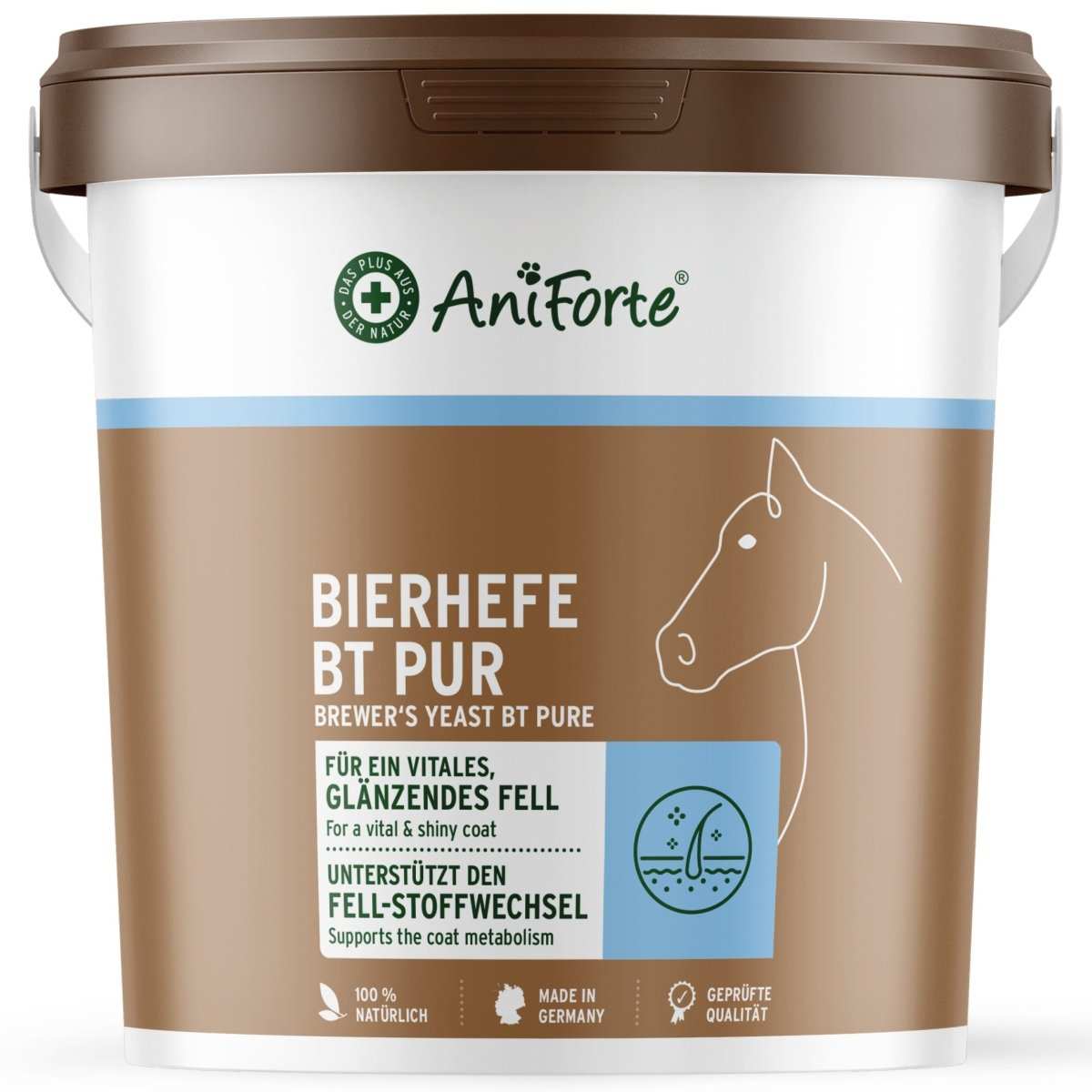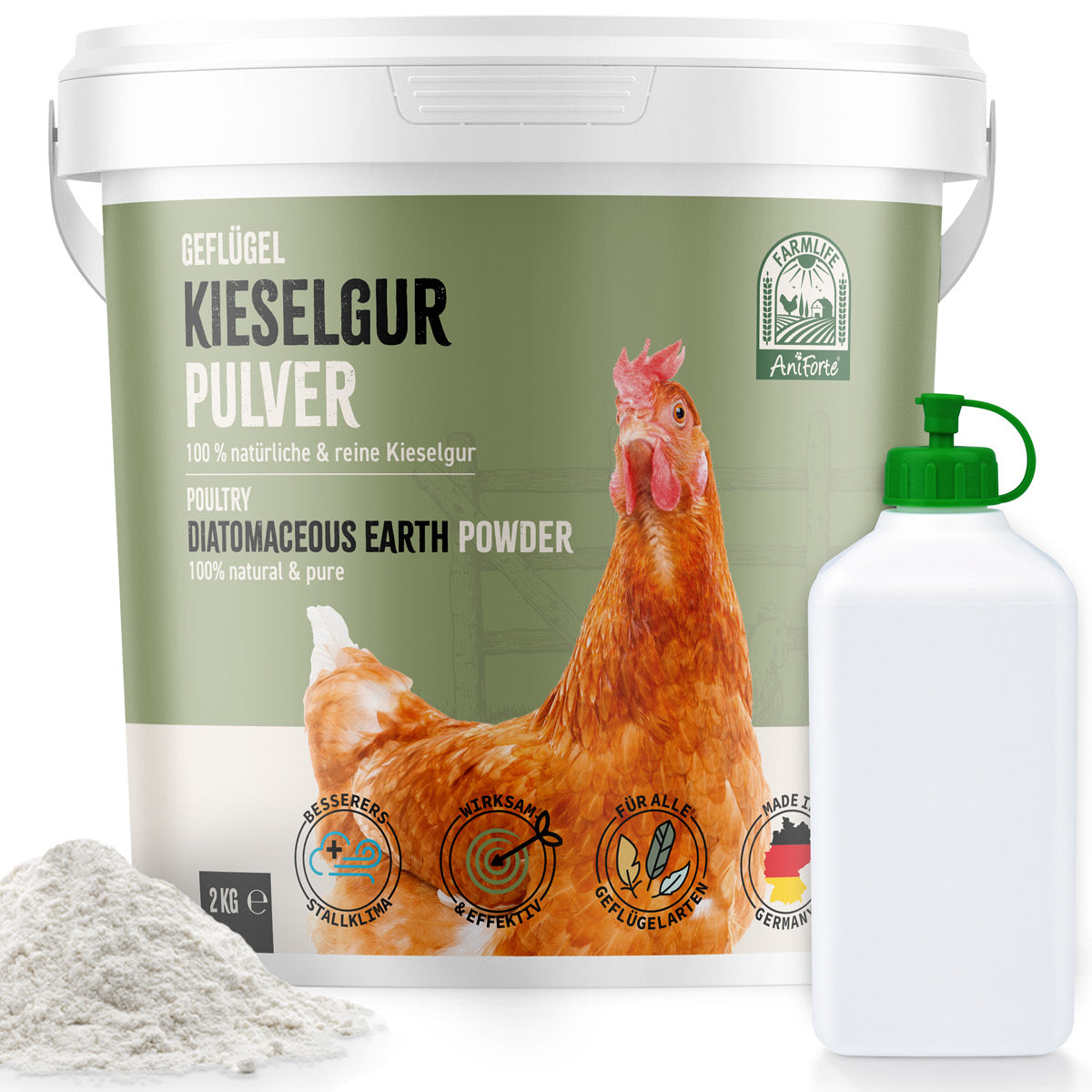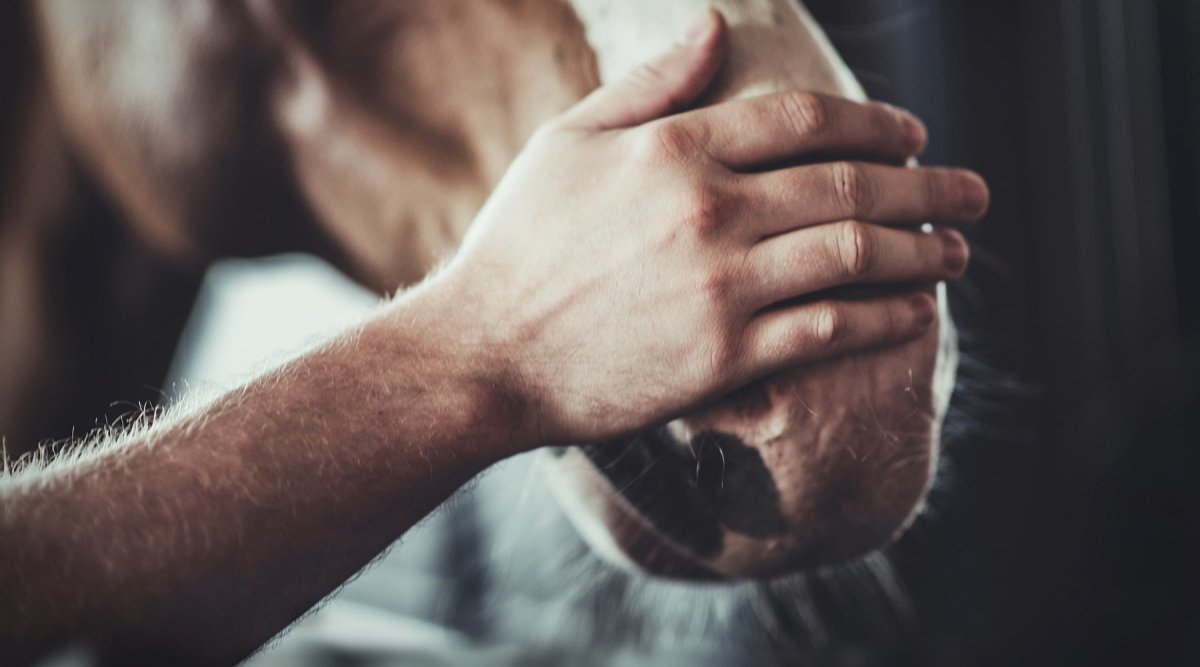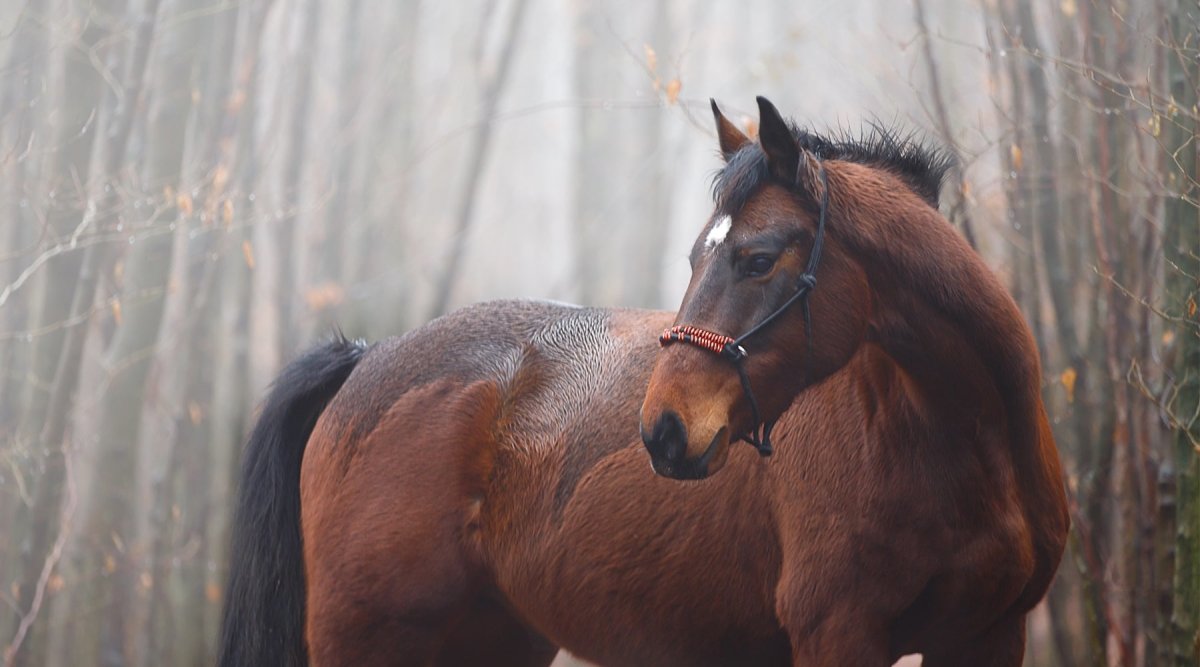Horses are particularly challenged by the change of seasons between fall and winter. The harsh season not only brings with it a change of coat, but your animal's digestive and immune system also has to adapt. Today, our veterinary practitioner Angelica reveals how you can prepare your horse naturally for the coming winter.
Why is the change from fall to winter stressful for horses?
Autumn has arrived and winter will not be long in coming. For most horses, this change means the end of summer grazing and a move to the stable or winter paddock. As the temperatures get colder and nature changes, your horse's diet will become less varied, which will require a change in the digestive system.
Your horse's body also has to get used to the shorter days and starts to build up its winter coat. At the same time, the weather changes lead to increased energy consumption. As if the immune system wasn't already busy enough with these challenges, there are also bowel cleansing, worming and vaccinations in the fall, which can put a strain on your horse's body.
The challenges of winter for your horse
As a horse owner, you can help your animal adjust to the cold season. Autumn offers the ideal opportunity for this, as the processes are already in full swing but the temperatures are often still bearable. Your horse has to overcome the following challenges during these months.
1. transition to the winter coat
The coat change
The winter coat is necessary for your horse to protect it from the impending cold, wet and snow. Your animal needs more energy - vitamins, trace elements and minerals - to build up a thick and dense coat. You can support them by adapting their diet accordingly: In particular, vitamin B types and biotin as well as various trace elements and essential amino acids (brewer's yeast) are required by the organism to build a resistant and thick coat. Older animals can sometimes suffer from deficiency symptoms when changing their coat. You can counteract this by feeding herbs, pure brewer's yeast and diatomaceous earth. Silicic acid, just like valuable silicon, is also contained in Hoof and coat for horses and also helps your animal to build up its winter coat.
Your horse's new winter coat
During the winter, your horse's upper coat becomes longer and at the same time a dense, soft undercoat forms, which may be less or more pronounced depending on the breed and how it is kept. Daily grooming is then essential. You can use nap or rubber currycombs and coat scrapers to remove old hair, for example, and you should bear in mind that the longer winter coat often requires somewhat coarser coat brushes.
This robust coat protects the horse from wind, cold and moisture and regulates its temperature. However, it is more of a challenge when it comes to grooming, riding or training. Removing dust, sand and mud from the coat often means hard work for you. However, a warm winter coat is essential for your animal's health.
Clipping and wrapping
Many riders worry about when exactly the right time has come to clip or wrap a horse. Each rider must decide individually for their own animal, taking into account the breed, age, attitude and use of their horse in winter.
If the horse is covered early in the fall, the natural formation of sufficient undercoat is suppressed. The hair-raising process, which normally protects your animal from the cold and wind, can also no longer take place.
Sports riders tend to put a lot of strain on their horses in winter, which is why they usually resort to clipping or full clipping. In contrast, the leisure or robust horse sweats primarily on the neck, hindquarters and belly. These animals are often only shorn after riding and can also be clipped in small areas. Horses with extremely thick coats may also be recommended to be clipped over a larger area. The strip cut or rally cut, on the other hand, is a good compromise and suits your horse if it generally tends to sweat quickly. At the same time, you will still have enough fur to provide the necessary protection in winter.
In most (warm) stables, there is no need for a shearing or blanket as the temperature does not drop as much. If you let your horse outside in the paddock, you should protect it with a blanket. In the case of sick or old horses, you will need to adapt this support individually.
2. challenged immune system
The changed temperatures, husbandry, daily rhythm and feeding are a challenge for the immune system. The change in stabling is often associated with additional stress for your horse. The horses are in a smaller space in winter, which often gives them a feeling of greater herd pressure. The increased pressure of infection should also not be underestimated, as parasites, viruses and bacteria can be transmitted more easily and quickly.
Strengthen your horse's immune system with a balanced diet
Just the fact that you are aware that your horse's immune system is particularly challenged at this time can help. Make sure you feed your horse a balanced and species-appropriate diet in addition to the usual hay. You should choose feed with lots of vital substances - these prevent deficiency symptoms and the resulting additional strain on the immune system and metabolism in good time.
In addition to pellets and muesli, the most common type of grain for support in the winter months is oats. However, hay cobs enriched with valuable herbs, which support the metabolism and provide important but above all natural vitamins, minerals and trace elements, are also a good alternative. Horses love herbs.
The generally increased energy requirements of your animal during the cold season should also not be underestimated. The horse's intestines depend on a regular supply of roughage to keep them healthy, so this should always be available to your animal. Also oils can also be a good source of energy for your horse in winter. However, as the horse normally moves much less at this time than in summer, you should always check and adjust the amount of concentrated feed.
3. sand deposits in the gut
In the fall, the meadows tend to become sparse and your horse also ingests soil and sand in the pasture with the low grass. This sand collects in the animal's large intestine with the respective feed mash and settles there over time, while the decomposed feed is transported further. The sand acts like sandpaper.
How can I clean sand from my horse's intestines?
To cleanse your animal's intestines, you should carry out a 30-day psyllium treatment. I always recommend using psyllium husks and letting them soak for about 20 minutes beforehand. Please do not feed them dry! You can tell whether the dosage is good by whether the horse's droppings are firm and shiny. However, it is difficult to detect sand in the manure with the naked eye. If the horse has diarrhea, the dosage is too high. If the psyllium husks remove too much water from the intestines, the apples are too dry. In this case, you should leave the husks to pre-soak in water for longer.
4. lack of exercise
The change in temperature also affects your horse's joints. Added to this is the restriction of movement in winter, which puts additional strain on older or previously damaged animals in particular. If the physiological interaction between the joint capsule, joint cartilage and synovial fluid no longer functions properly, this can be particularly noticeable during the posture-related standing times in winter.
Counteract your horse's lack of exercise
Despite the darker season, exercise should not be neglected. If you keep your horse in a box in winter and social contact with other horses is therefore limited, your animal needs your attention all the more. If you offer your horse variety and exercise in the fresh air, even in the cloudy season, you will keep its figure in shape and its joints in motion. At the same time, you can promote healthy blood circulation and support the joints with an appropriate diet.
Proven helpers to counteract mineral and vitamin deficiencies are Rosehip powder, Devil's Claw Joint Active for Horses and green-lipped mussel powder. If you also make sure that your horse gets its daily exercise, then it will certainly survive the cold days well. Because as you know, you can only rest if you rust.





